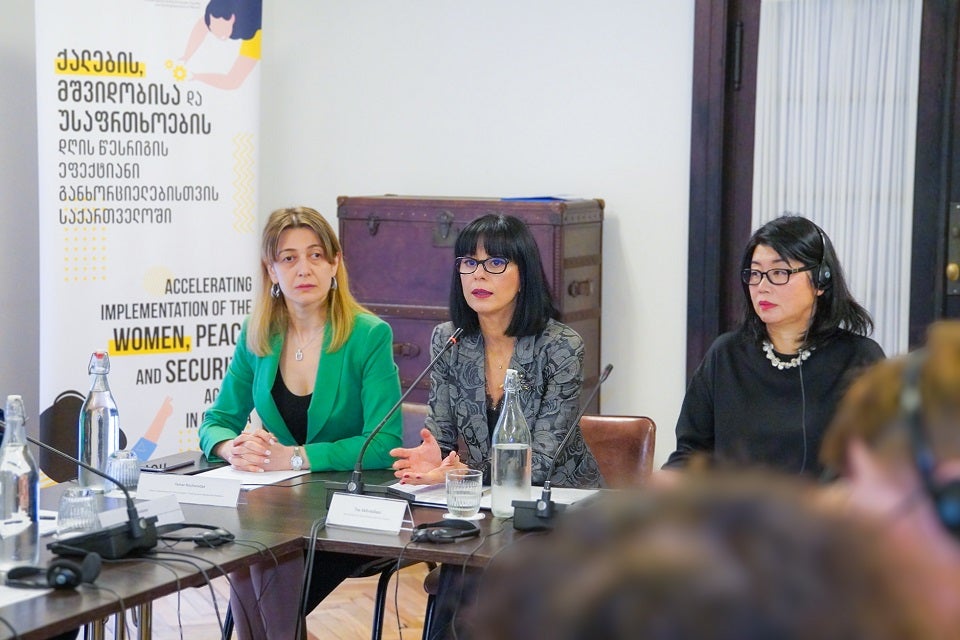Dialogue continues between the participants of the Incident Prevention and Response Mechanism (IPRM) and civil society
Date:

UN Women continues to support regular meetings among the Georgian participants of the Incident Prevention and Response Mechanism (IPRM) and the representatives of the women’s civil society organizations, as well as the displaced and conflict-affected women.
On 14 November, one such meeting was held in Tbilisi, opened by the State Minister for Reconciliation and Civic Equality of Georgia, Tea Akhvlediani.
In her speech, the State Minister underlined how important it is to ensure the active involvement of women and youth in peacebuilding processes and that they share their opinions, interests and needs. Ms. Akhvlediani once again highlighted the role of the IPRM, which facilitates the discussion on the security issues, human rights and humanitarian situation of the conflict-affected population living on both sides of the dividing line.
The State Minister emphasized that until there is full-scale conflict resolution and alongside the country’s de-occupation efforts, the Government pursues its most important priority— to rebuild trust and historically established relations based on mutual respect between the communities artificially divided by barbed wires or disinformation—while at the same time, taking care of the conflict-affected population living across the dividing line, creating decent living conditions and providing them with new opportunities.
Together with the IPRM participants, those attending the meeting included members of civil society, representatives of women’s NGOs and conflict-affected women, including those living in the villages near the dividing lines and displaced women.
As part of the discussion, meeting participants discussed the situation in the occupied regions and neighbouring villages near the dividing line, in particular the humanitarian challenges and the specific needs of the local population, including the conflict-affected women.
Nato Bachiashvili, the Chairperson of the International Centre for Geopolitical Studies, emphasized how important it was to intensify the work of the international organizations in the current situation—and specifically, the role of the EU Monitoring Mission, in order to prevent such incidents as the murder of Tamaz Ginturi on 6 November. “It is important that the international organizations assess the situation correctly and respond adequately,” she said.
The meeting was held within the framework of the UN Women project “Accelerating Implementation of the Women, Peace and Security Agenda in Georgia”, generously supported by the Conflict, Stability and Security Fund (CSSF) of the UK Government.